#golden elliott awards
Text
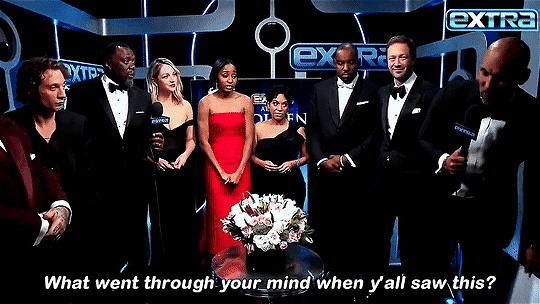
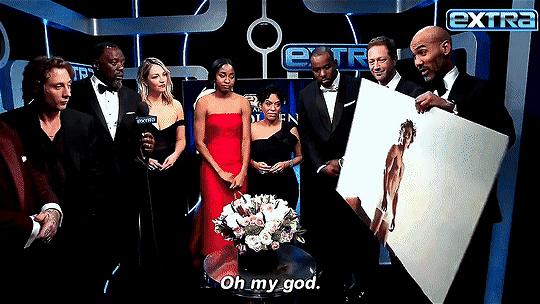
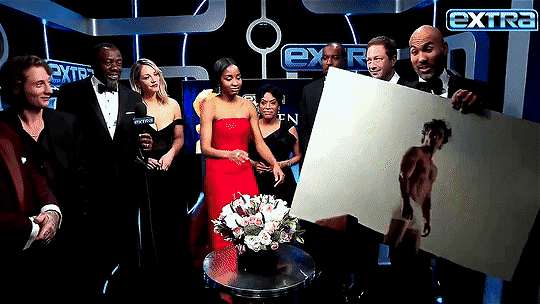
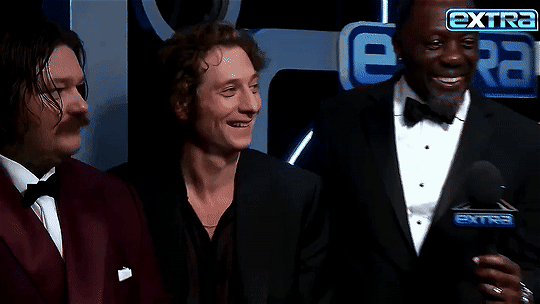
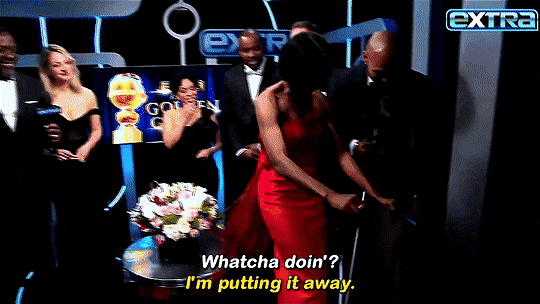
THE BEAR CAST
Extra TV Interview with Melvin Robert at the 2024 Golden Globes
#ayo edibiri#jeremy allen white#lionel boyce#liza colón zayas#edwin lee gibson#ebon moss bachrach#matty matheson#abby elliott#melvin robert#extra tv#golden globes#golden globes 2024#the bear#the bear cast#the bear fx#award show#award shows#gg 2024
423 notes
·
View notes
Text

Abby Elliott | KYHA Studios dress • Tyler Ellis clutch | Golden Globe Awards | 2024
#pc: justjared#abby elliott#kyha studios#tyler ellis#golden globe awards#2024 golden globe awards#2024
5 notes
·
View notes
Text
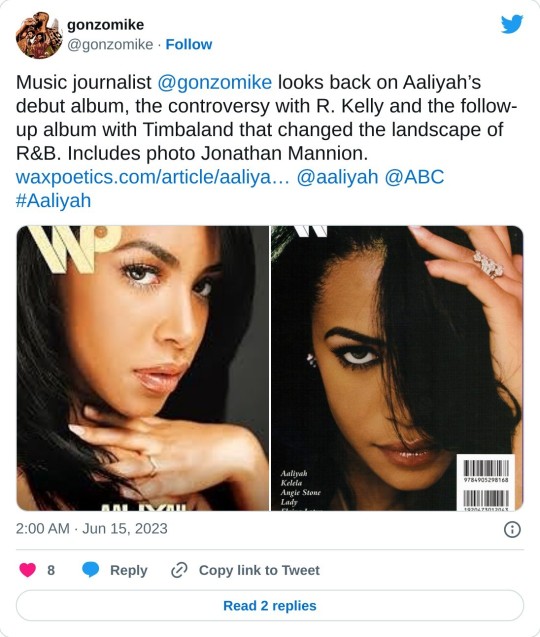
Eternal Soul
On the heels of her best-selling debut, Age Ain’t Nothing But a Number, fifteen-year-old Aaliyah was rocked by a sex scandal that would have crushed a lesser talent. But breaking ties with her label and former producer and paramour R. Kelly afforded the teenage singer to create a new musical life for herself. She joined forces with production/songwriting duo Timbaland and Missy Elliott, who crafted a set of funky and futuristic soul tracks that took audiences and stale R&B radio by storm. Aaliyah showed strength and resilience—and effortless cool—and went on to garner multiplatinum sales, becoming a huge star. But her comeback was short-lived. At twenty-two, just as she released her third album and started an acting career, Aaliyah lost her life in a plane crash. However, icons never die, and her musical legacy endures.
published online Wednesday, December 9, 2020
Originally published in Issue 59, Summer 2014
By Michael A. Gonzales
It was the last weekend before Labor Day 2001, and the sidewalks of New York City were brimming with Saturday-night folks looking for fun. While a decade before the Meatpacking District was literally just that—with refrigerated trucks parked in front of dingy warehouses and the cobblestone streets sticky with animal blood—by the new millennium, those same blocks had transformed into a chic section of town overflowing with boutiques, restaurants, and clubs blasting the songs of summer that included P. Diddy’s Black-rock single “Bad Boy for Life” and Destiny’s Child’s pop-tart anthem “Bootylicious.”
As I was passing one trendy spot, pop sensation Aaliyah’s latest single, “We Need a Resolution,” blared from the speakers. With a voice that was shy and sexy, the mesmerizing track was the first from her self-titled third album, released a month before. Produced by frequent collaborator Timbaland—whose signature cyberfunk explorations into sound put an electrifying mojo on Black radio in the mid-’90s beginning with Aaliyah’s sophomore album, 1996’s One in a Million—her cool, broken-hearted soprano blended perfectly with the heat generated from his funky, futurist machine dreams.
Like Rachael, the emotional android in Blade Runner, Aaliyah became a cyborg chanteuse, a digital diva for a new generation of soul children. With the music being stuck in a rut of stylistic nostalgia and neo-soul mania, One in a Million made R&B’s potential feel limitless again, as it pulled listeners into the future.
Coming a year before Björk’s equally brilliant 1995 album Post, Aaliyah’s debut, Age Ain’t Nothing But a Number, came from a teenage girl from the D who brought the rhythmic weirdness first.
In 1995, Aaliyah Dana Haughton met Timbaland when she was sixteen after leaving her first label, Jive Records, amid much controversy of an illicit marriage to her then twenty-seven-year-old producer R. Kelly, who’d written most of the material on Age. Although both sides denied the allegations, a marriage license was later published in Vibe magazine.
While the “pied piper of R&B”—as Kelly proclaimed himself—had gained much fame since the release of his multiplatinum 12 Play album in late 1993, and was given a pass by the press and his fans, Aaliyah was portrayed as a Lolita seductress. When her picture was shown at the 1995 Soul Train Awards (she wasn’t in attendance), audience members booed.
Years later, allegations of Kelly’s alleged sexual misconduct continue to overshadow his music, including an infamous golden-shower sex tape, a housekeeper who sued him for sexual harassment, and rumors of millions doled out to settle “dozens” of “harrowing lawsuits” brought by scores of underage girls the musician reportedly sexually abused.
Although Age was a platinum-seller for Jive, the label allowed Aaliyah to be released from her contract. Her management company, Blackground, owned and operated by her mother’s brother, Barry Hankerson, who also managed R. Kelly, signed her with Atlantic Records. At the urging of Atlantic vice-president of A&R Craig Kallman (who in 2014 is the label’s chairman), Tim (aka Timbaland) flew to Aaliyah’s hometown of Detroit, Michigan, with fellow producer, songwriter, arranger, and rapper Missy Elliott.
Initially, Aaliyah’s second album was supposed to be helmed by the jiggy prince of production Puff Daddy (P. Diddy) and his trademarked, sample-heavy touch with the Hitmen team (Chucky Thompson, Deric Angelettie, Ron Lawrence, Stevie J., and others), but it never happened.
“I went to Puff’s studio in Trinidad for a week,” Aaliyah said in 1996. “We started working together, but we couldn’t finish the songs on time. I had to leave, because I had to go to Atlanta to record with Jermaine Dupri.”
Setting up shop in Detroit at Vanguard Studios, which was owned and operated by producer/guitarist Michael J. Powell, who’d overseen Aaliyah’s demo material when she was twelve, Tim and Missy went to work. “The first song we recorded was the title track [‘One in a Million’],” Timbaland told me in 1999. “From our first session, I was blown away by how talented she was.” While Missy later claimed that “If Your Girl Only Knew” was the song recorded during their first session, what remains undisputed was the closeness the trio felt during that time.
The Black noise duo christened the beautiful Brooklyn-born, Detroit-reared singer “Baby Girl,” and they became inseparable. Staying at Vanguard for a week, the three of them later flew, according to Missy Elliot, on “a little, little plane,” to Pyramid Studios in Ithaca, New York, to finish their work. The end results were the six groundbreaking tracks and two interludes from her second disc, One in a Million.
Legendary engineer Jimmy Douglass (who worked on countless Atlantic R&B classics) connected with them in Ithaca. “Aaliyah was coming off such a big debut,” he says, “so it would’ve been all right for her to be bratty, but she wasn’t. She was such a nice human being. Aaliyah was very quiet, but when she sang, she sounded great. I was impressed.”
In July 1996, a month before One in a Million was released, I interviewed Aaliyah at the Sea Grill, a restaurant at Rockefeller Plaza in New York City. Having first met her two years before, I realized that Aaliyah was always a sweetheart, yet very guarded. After a sex scandal that might’ve squashed a lesser talent, she was obviously resilient. She answered questions thoroughly but tried not to disclose too much about R. Kelly or the alleged marriage.
“I faced the adversity,” Aaliyah said. “I could’ve broken down, I could’ve gone and hid in the closet and said, ‘I’m not going to do this anymore.’ But I love singing, and I wasn’t going to let that mess stop me. I got a lot of support from my fans and that inspired me to put that behind me, be a stronger person, and put my all into making One in a Million.”
Sitting next to her equally beautiful mother, Aaliyah was radiant, coy, and confident as she talked about Tim and Missy’s production skills. “At first, Tim and Missy were skeptical if I would like their work, but I thought it was tight, just ridiculous,” she said. “Their sound was different and unique, and that’s what appealed to me.
“Before we got together, I talked to them on the phone and told them what I wanted. I said, ‘You guys know I have a street image, but there is a sexiness to it, and I want my songs to complement that’; I told them that before I even met them. Once I said that, I didn’t have to say anything else. Everything they brought me was the bomb.”
Besides Tim and Missy, she also worked with producers Kay Gee (Naughty by Nature), Daryl Simmons (L.A. Reid and Babyface), and Vincent Herbert (Toni Braxton), who laced her dope remake of Marvin Gaye’s classic “Got to Give It Up,” which featured a smooth Slick Rick rap. Aaliyah explained how the remake came about: “I wanted some real party songs, so when my uncle played me that [original track], I thought of how I could make it different. Slick Rick [who’d been in jail] was on work release at the time, so Vincent got him on the song.
“I don’t know how Marvin Gaye fans will react, but I hope they like it,” she continued. “I always think it’s a great compliment when people remake songs. I hope one day after I’m not here that people will cover my songs.”
Aaliyah’s uncle and manager Barry Hankerson was the person most responsible for making his niece a star. “Barry was bringing Aaliyah to the studio to record when she was twelve years old,” remembers producer and Vanguard owner Michael J. Powell via telephone from his home in Detroit. “At the time, Barry was trying to get Aaliyah a deal with MCA, and he came to me to make her demos.”
Powell was a Chicago native whose studio, Vanguard, was a place that made sophisticated soul. Best known for the lush retro-nuevo production on Anita Baker’s incredible Rapture album in 1986, Powell has also worked with Aretha Franklin, Patti LaBelle, and Gladys Knight, who was married to Barry Hankerson from 1974 to 1978. “As a producer, Michael is a very patient person with great ears,” says Bill Banfield, composer and professor at the Berklee College of Music. A friend of Powell’s, he has also recorded with him. “Vanguard was the second generation of Motown with a live band, polished arrangements, and Detroit soul.”
Powell, who is still working in Detroit, recalls working with the singer back before her debut: “That was the time before Aaliyah went to work with R. Kelly, and she sang in a full, powerful voice that was like Whitney Houston’s. We recorded a few covers—‘The Greatest Love of All,’ ‘Over the Rainbow,’ and ‘My Funny Valentine,’ which she had sung on Star Search. She could handle big ballads, and she had great range. I have heard her do things the public have never heard. She was a natural.”
One of Aaliyah’s first professional gigs was singing with her aunt Gladys Knight in Las Vegas. “We performed at Bally’s five nights a week with a little break in between,” Aaliyah said in 1994. “Singer David Peaston [whom Hankerson also managed] opened the show, and then Gladys would bring me out to sing ‘Home’ with her, and then we did ‘Believe in Yourself.’ I loved it; for me, it was like being on tour.”
In 1996, while Aaliyah cited “One in a Million” as her favorite song, the label chose to release “If Your Girl Only Knew” as the first single. However, having debuted in 1994 with the more traditional soul stylings of R. Kelly writing and producing Age Ain’t Nothing But a Number, not everyone was pleased with the singer’s new direction.
That album broke ground with its experimental tempos and drum programming and hip-hop soul songwriting. Jason King
“Me and Tim were so excited, because this was the first production we were doing outside of DeVante’s camp,” Missy explained. In addition to Jodeci and their famed producer DeVante Swing, the aforementioned camp of young upstarts included Sista (Missy’s rap quartet), Ginuwine, Magoo, Playa, and Tweet. “We were only supposed to do one record, but Craig [Kallman] kept asking us for one more; but, when they played [the singles] ‘If Your Girl Only Knew’ and ‘One in a Million’ for radio programmers, they were afraid to embrace it. They said the beats were too different and it wouldn’t fit in with their playlist. They wanted something that sounded like Puffy.”
Still, when a few braver souls started playing the record, it just took off. “That album broke ground with its experimental tempos and drum programming and hip-hop soul songwriting,” says Jason King, cultural critic, musician, and the director of the Clive Davis Institute of Recorded Music.
By 2001, Aaliyah released a handful of Timbaland-produced, soundtrack-supported singles that pushed the experimental sound even further—including the Grammy-nominated scorchers “Are You That Somebody?” from 1998’s Dr. Dolittle and “Try Again” from her costarring vehicle Romeo Must Die in 2000. As pop critic Kelefa Sanneh wrote in 2001 in the New York Times, “ ‘Try Again’ helped smuggle the innovative techniques of electronic dance music onto the pop charts, establishing Aaliyah as pop’s most futuristic star.”
The lyrics of both songs were penned by former Playa member Static Major, who also wrote “We Need a Resolution.” Like Missy and Timbaland, the songwriter was once a protégé of Jodeci producer DeVante Swing. Engineer Jimmy Douglass, who has worked side by side with Timbaland on every production since the early days, says of the late songwriter, who died in 2008 from myasthenia gravis: “Static was like a brother to Tim, and he knew exactly how to write to Tim’s music. The first record they did together was Ginuwine’s ‘Pony,’ and that led to their [musical] history.
“We recorded ‘Are You That Somebody?’ at Capitol Records’ studio in Los Angeles,” Douglass recalls, “and it was a soup-to-nuts session, which means we did the entire song in one session. Wrote it, tracked it, and mixed it from 11:00 p.m. to 9:00 a.m.; the next to last thing we added was the sound of the baby, and the very last time was Tim saying, ‘Dirty South.’ It was a union studio, so they weren’t used to working overnight; we were trying to finish that song as quick as possible.”
Douglass also engineered the “Try Again” sessions, which began with Static writing a song that was inspirational. Recorded in New York City at Sound on Sound Studios, “Try Again,” as Douglass recalls, “was originally written to inspire young people, but Barry [Hankerson] heard it and told them, ‘It’s got to be about love.’ The melody and hook were the same, so Static changed the lyrics and it became a love song.”
In addition, Aaliyah had begun an acting career that was taking off. Cast in the Joel Silver–produced kung-fu crime flick Romeo Must Die as well as the Anne Rice vampire thriller Queen of the Damned and the Matrix sequels, Aaliyah hadn’t released a full-length album in the five years. “I wanted to take a break after One in a Million to just relax, think about how I wanted to approach the next album,” she told journalist Elon Johnson that April. “Then, when I was ready to start back up, Romeo happened, and so I had to take another break and do that film and then do the soundtrack, then promote it. The break turned into a longer break than I anticipated.”
Back in the Meatpacking District that August night in 2001, I gathered with friends at the then-popular club APT where DJ Chairman Mao spun old-school hip-hop and soul as high-heeled girls sipped crimson-colored cosmopolitans.
Two hours later, a strange vibe could be felt in the wood-paneled room as folks began looking strangely at their Blackberries, pagers, and cell phones. Standing beside me, a female friend suddenly blurted, “Oh my God, it says here that Aaliyah died in a plane crash.” Seconds later, along with other women in the room, she began to weep.
The accident occurred when she and her team were returning to Miami, Florida, from the Bahamas, where she shot the video for “Rock the Boat,” the third single from Aaliyah, her third album finally released in 2001. Their small twin-engine Cessna plane was several hundred pounds overweight and crashed after takeoff, exploding on impact. The pilot was found to have had cocaine and alcohol in his system and had falsified data in order to receive his FAA license.
At the age of twenty-two, Aaliyah Dana Haughton became the latest pop star to enter that rock-and-soul heaven that the Righteous Brothers sang about so many years before. Glancing around at the crying females, most no older than Aaliyah herself, it became obvious to me that she was much more than a star—she was one of them.
Harlem resident and former Jive Records executive Jeff Sledge, who had known the songstress since she was a fifteen-year-old schoolgirl, had returned from the movies with his fiancée when he heard the news. “It was supposed to be hip-hop night on Hot 97, but they were playing a mix of Aaliyah songs instead,” he recalls thirteen years later. “And then [DJ] Red Alert announced that she had died. I was stunned.”
Of course, he wasn’t the only one. For days, the world mourned the young star with television specials, radio interviews with her contemporaries and friends, and a candlelight vigil in front of her alma mater, the Detroit High School for the Fine and Performing Arts. Furthermore, her stunning movie-star features were plastered on the covers of newspapers and magazines.
Although she had the looks of a femme fatale, she was a sweet girl who’d been forced to grow up much too fast and died too young. However, as we all know, icons never die, because the images are forever. In her short lifetime, Aaliyah must’ve had her picture taken a million times, made countless videos, and created music that is still relevant to fans as well as to fellow pop idols Beyoncé, Drake, Chris Brown, Rihanna, and others.
“There are so many artists trying to re-create the Aaliyah vibe in their music,” says singer Courtney Noelle, who was in seventh grade when the Black pop princess died. Growing up on the East Side of Pittsburgh, Noelle made up dances to “One in a Million” while watching the video constantly. “Aaliyah was so relatable and cool; she wasn’t over-sexualized, so we didn’t worry about Mom disapproving,” Noelle continues. “She sang, danced, and acted, but she did it all so effortlessly. She was just so beautiful and graceful.”
While One in a Million was a landmark, the adolescent wonderfulness of Age Ain’t Nothing But a Number is often overlooked when Aaliyah’s small canon of work is examined. Of course, as Jason King points out, “Age has been marred by their troubling marriage and the [statutory] rape/pedophilia allegations that would come later. I don’t think we can now hear Age, particularly given the title, without taking the issue of teenage rape into account. So when I’m listening to Age, I’m struggling to try to listen to it out of context, but mostly I’m hearing R. Kelly as an alleged predator presenting to us his sonic and musical vision of how he wanted Aaliyah to exist in the commercial marketplace.”
Still, for me, Age Ain’t Nothing But a Number connects with many memories of the ’90s soul years that gave us debuts from Mary J. Blige, Jodeci, D’Angelo, Faith Evans, Maxwell, Erykah Badu, and the era’s most successful singer, writer, and producer, Robert Sylvester Kelly.
In 1991, R. Kelly and Public Announcement signed to Jive Records a few years before Britney Spears and the Backstreet Boys took them mainstream. Better known for being the home of top-tier hip-hop acts A Tribe Called Quest, Boogie Down Productions, Schoolly D, and E-40, the Jive label was put into the business of soul by the success of Kelly’s post–New Jack Swing sound on Born into the 90’s and 12 Play.
“Barry Hankerson had been talking about his niece Aaliyah since she was twelve, but [label owner Clive Calder] thought she was too young,” says A&R man Jeff Sledge, who began working at the label in 1992. “When she turned fourteen, Clive agreed, but only under the condition that R. Kelly produced the whole album. Musically, it just made sense.”
For Robert Kelly, 1993 was a hell of a year. A bittersweet twelve months that included a substantial development in his R&B sound, the death of his beloved mother, Joanne, and the success of his album 12 Play, which was praised by critics and fans alike. It was also the year he began working on the material that would eventually become Age Ain’t Nothing But a Number.
Although R. Kelly attempted to uphold his Chi-Town swagger after the death of his mother, the man was a mental mess. There were bizarre reports of the singer locking himself in hotel bathrooms during press days, blowing off Rolling Stone photo shoots, and sleeping in the closet. “His mother was the sweetest lady,” Jeff Sledge says. “When she died, he had a nervous breakdown. During that time, he was also making Age, so Aaliyah was always around to comfort him. After his mother’s passing, all he felt he had left in life was his music and working with Aaliyah.”
R. Kelly’s love for music began when he was a fifteen-year-old student at Chicago’s Kenwood Academy where he encountered famed music instructor Lena McLin. The niece of gospel innovator Thomas A. Dorsey, she taught her students opera, gospel, jazz, and soul. As a child growing up during the Depression, she lived with Reverend Dorsey and played in church. While other girls wanted dolls, Lena McLin wanted sheet music.
McLin taught R. Kelly everything she knew about the keyboards, pushing him by anointing her student “the next Stevie Wonder.” Encouraging the poor lanky boy from the South Side to put down his basketball and sit at the piano, she started him writing songs as well as teaching him discipline. “He didn’t have much,” McLin explained to me in 1995 in a Chinese restaurant in the Hyde Park section of Chicago. “He came from a terrible ghetto and sometimes wouldn’t have the clothes the other kids had, but I had a vision of what he was going to be. The Lord told me he was a genius, and I wouldn’t take no for an answer.”
So, what exactly is a genius? “A genius lives in the present day, has studied the past, and preconceived the future,” explained McLin. “Robert’s mission is to bring back the real essence, the real creativity, the real soul to the music.” Although Robert dropped out of Kenwood when he was seventeen, he already had five hundred completed songs in his portfolio, according to McLin. “Well, I don’t think it was five hundred, but it was a lot,” R. Kelly told me in 1995 while mastering his third album at the Chicago Recording Company (CRC). Founded in 1975, it is billed as the largest studio in the Midwest. The studio became R. Kelly’s main sound factory in the early years.
For R. Kelly, the state-of-the-art room became the rhythmic cathedral where he would expand on the musical legacy of Windy City soul—his city where the Chi-Lites once doo-wopped on street corners, Leroy Hutson made gangster-lean tracks for Curtom, and a young rapper named Common was recording his Resurrection album somewhere across town.
“Miss McLin started me writing every day,” Kelly said. “I’d write a song and she’d tell me it was the most beautiful song she’d ever heard. She also started me messin’ around with the piano. I just wanted to make her happy.” Growing up in the notorious Ida B. Wells Homes, Kelly found those streets a lot more dangerous than the days of Cooley High.
“I had a lot of ups and downs, lots of lessons, and trials and tribulations,” Kelly said. Avoiding the gangs, he spent much time at a neighbor Willie Pearl’s house playing her keyboards. One of the first songs he wrote, “Orphanage,” was inspired by a television program. Singing in L stations throughout the city, he waited for strangers to drop change in his chitlin bucket.
Kelly was discovered by house-music pioneer and former Trax Records employee DJ Wayne Williams. After seeing him perform original material at a friend’s barbecue, Williams had to convince his new bosses at Jive Records to sign him: “I was constantly telling them that R. Kelly was the shit, but it took Barry Weiss, the president of the label, coming to Chicago, before they finally said yes. Jive had full confidence in him and gave R. Kelly creative freedom.” While Kelly’s debut, Born into the 90’s, sounded as though it was jacked wholesale from the Teddy Riley/Aaron Hall school of Harlem boogie, by the time 12 Play came out in 1993, the brother had perfected a baby-makin’ style on tracks “Bump N’ Grind,” “Your Body’s Callin’,” and the epic erotica of “It Seems Like You’re Ready.”
Additionally, the album’s more danceable tracks, “Summer Bunnies” and “I Like the Crotch on You,” showed his dance-floor diversity. Still, whether the tempo, Kelly’s lyrics were often sexually explicit, filled with lustful references and obvious double entendres. “He grabbed the brass ring by stepping fully into the role of hypersexual super-stud,” Jason King says. “That’s an archetype in Black music that stretches very far back and that Isaac Hayes took to new heights in the early 1970s. Songs on 12 Play were very much musical analogues of the celebration of Black, freaky, and carnal culture in the 1990s.”
Soon afterwards, Kelly began applying his newly developed, smoothed-out, seductive sounds to singles for Hi-Five (“Quality Time”) and Changing Faces (“G.H.E.T.T.O.U.T.”), and was more than ready to tackle a full-album project for his manager’s niece. “With the flair and energy he puts into his music, we can feel it,” McLin said. “Even when working on songs for others, he touches all the talent he comes in contact with; Robert’s mission is to bring soul music back.” Inspired by an extensive list of vocalists, musicians, and producers including Quincy Jones, Donny Hathaway, Curtis Mayfield, and Tyrone Davis, he turned himself into an R&B auteur on the Age Ain’t Nothing But a Number project.
R. Kelly was determined to become a one-man Holland-Dozier-Holland with a splash of Phil Spector eccentricity to keep things interesting. “Age was solely an R. Kelly production intended to not only introduce us to Aaliyah, but to show off R. Kelly’s polymath awesomeness,” says King. “It’s hip-hop soul in the way that Mary J. Blige, Xscape, and SWV fused those genres. But, Aaliyah embodied the hip-hop soul merger in a different way. She had the sweet, soothing, and slightly reserved soprano more associated with Diana Ross, Minnie Riperton, or Janet Jackson. I don’t think any producer understood what contemporary R&B audiences wanted to hear and pushed them further in the 1990s more than R. Kelly.”
In the summer of 1993, with Aaliyah on break from the Detroit High School for the Fine and Performing Arts, she spent her entire vacation holed up inside the CRC. “The first song we recorded was ‘Old School,’ which I loved, because it had an Isley Brothers flair,” Aaliyah said. “That song didn’t take long to do, maybe two days. At first, I had to get comfortable, but I had been around Robert, so it was cool. Both Robert and I are perfectionists, and if you listen to the music, there is a lot of passion in it.”
Like Batman, one of his favorite comic book characters, R. Kelly worked best at night. “Most people are asleep, so it’s just the moon, the stars, the quiet, and the music.” Subsequently, the nights spent with the underage singer led to Kelly’s first accusations of statutory rape when an alleged affair began between them. Although there was a twelve-year age difference, the affair supposedly led to marriage, which paved the way for scandal and an annulment. While R. Kelly and Aaliyah always denied these accusations, the man who wrote the title track to Age tellingly said, “I write from everyday experiences and what moves me; that, to me, is a true writer. I love all forms of music. Everything that comes into my mind and hits my heart, I write it and record it. I love songs that mean something, and have some kind of truthfulness to them.”
Photographer Terrence A. Reese (aka Tar), who shot the album covers for 12 Play and Age, recalls that during the shoot “Aaliyah relied on Robert to teach her. He was like Berry Gordy to her Diana Ross. The following day was her fifteenth birthday, and she was also going to film the ‘Back & Forth’ video, so they were working on the dances and styling. You could see the attraction between R. Kelly and her.”
Turning back the hands of time to Good Friday, 1994, I was on a flight from New York City to Detroit to interview Aaliyah. Hired by Jive Records publicist Lesley Pitts, who was also my girlfriend, I was assigned to write the budding singer’s bio. Having worked with TLC and Toni Braxton on their debuts, Lesley was excited about the teenager’s pop potential.
Aaliyah’s first single, “Back & Forth,” was already being played on the radio and video channels. Unlike the broken-glass balladry of Mary J. Blige, which was hard as the Yonkers ghetto she hailed from, Aaliyah’s voice had a soft strength that reminded me of the Black pop women (Dionne Warwick, Marilyn McCoo, and Barbara McNair) I’d grown up listening to in the ’70s.
For weeks, Lesley had been bragging that this new kid was going to be large; after hearing a few tracks, including “At Your Best (You Are Love),” her lovely cover of the Isley Brothers’ ballad, I was hooked. “I like to groove to artists like Parliament or the Isley Brothers, because that was when music was really real,” Aaliyah said later that day. “I just think the Isley Brothers are so unique.”
After my jet landed in the Motor City, I took a short cab ride to the Sheraton Hotel and within minutes was sitting in the dining room with Aaliyah, her mother Diane, and Lesley. Dressed casually in jeans and sneakers, Aaliyah wore her shades, but soon took them off as she became more comfortable with me. “When I was younger, I used to go around the house singing with my mother,” Aaliyah said, her voice poised and proper.
Coming from a middle-class family, she was a product of nice schools and an artistic yearning that was encouraged with classes. “I’m a big fan of Johnny Mathis, so I used to sing ‘Chances Are’ with my mom. Luther Vandross was another favorite. I was so drawn to singing, because I could get away from everything, and I just loved it.”
Uncle Barry first introduced Aaliyah to R. Kelly when she was twelve. “He was just completing Born into the 90’s, and I sang for him,” she smiled, her voice lightening. “I sang for him, and he liked what he heard. Still, we didn’t start working on the album until a few years later.”
Arriving first in January of ’93, when there was snow on the ground, Aaliyah returned in the summer, and their relationship clicked in the studio. “We vibed off of one another, and that’s how the songs was built,” she said. “He would vibe with me on what the lyrics should be. He’d tell me what to sing, and I’d sing it. That’s how the whole album was done. We put in a lot of hours; as far as the music, we’d be in there all night making sure it was perfect. There were times when I was tired, but I knew I had to push on if I wanted to come off.”
When the two weren’t recording, they’d be in the studio watching horror movies. “Silence of the Lambs was my favorite,” she said. “The studio can be hectic, so sometimes we went to McDonald’s.”
While some of the Kelly’s double entendres could be embarrassing, Aaliyah defended “Back & Forth,” a song whose title hints of sex. “It’s not a song about love or whatever; it’s about going to a party and having fun. I have songs about love, crushes, or whatever, but that song is about dancing. This album is about teens and what they go through.” One of the more forward crush records was the sensually upbeat “No One Knows How to Love Me Quite Like You Do.” Aaliyah smiled when I asked about it and said, “Every girl looks for that one person who is going to love them right. That song is saying, when it comes down to it, I like how you satisfy me.”
Months before Age was released on May 24, 1994, the stylish Millicent Shelton–directed clip for “Back & Forth” was shot at Aaliyah’s performing arts school in Detroit, where teens were recruited to be in various scenes. “That was my first video, but Millicent made me comfortable.” Between takes, she listened to the music of Tupac, Wu-Tang, and Gang Starr. “They all rap on an intellectual level.”
In the studio, she was a sponge who later spoke about her aspirations to produce and write: “When we were recording ‘Down With the Clique,’ I watched how Robert [Kelly] laid the drums and everything. He taught me to play the piano a bit, and I’m also trying to learn the mixing board, though it looks complicated. The studio is my first love.”
After wrapping the interview, Lesley and I went upstairs to our hotel room. Once inside, I turned to her and bluntly stated, “I know this sounds crazy, but I get the feeling R. Kelly is sleeping with that girl.”
Looking at me as though I was losing my mind, Lesley was appalled. “Why would you say something like that?”
“It’s just a feeling I get.”
“Well, it’s not true, so don’t say that,” she scolded, more protective publicist than loving girlfriend. Of course, a few months later, the entire sordid story became yet another tale in the Babylon that is the music industry that eats its young.
In 2013, journalist Jim DeRogatis, who broke the R. Kelly sex scandal in 2002, told the Village Voice, “I had Aaliyah’s mother cry on my shoulder and say her daughter’s life was ruined. Aaliyah’s life was never the same after that.”
Six days after the disaster that ended Aaliyah’s life as well as the lives of the pilot and seven members of her team, I sat in my Brooklyn apartment watching footage from Aaliyah’s funeral on Entertainment Tonight. There were images of the white horse-drawn carriage that carried her casket from Frank E. Campbell Funeral Chapel to St. Ignatius Loyola Church on East Eighty-Third Street in Manhattan.
After the funeral, in front of thousands of fans, twenty-two doves representing the years of her life were released in front of the church as her mother Diane, father Michael, older brother Rashad, Uncle Barry, and fiancé Damon Dash cried. The only person missing, for obvious reasons, was R. Kelly.
Six years before—just a year removed from his notorious split with Aaliyah—R. Kelly sat inside his studio at CRC telling me about producing for other artists, including Michael Jackson (“You Are Not Alone”) and Kelly Price (“Friend of Mine”). “I have many styles,” he said. “I’m more than just the 12 Play guy. I don’t write one kind of thing.”
Looking at him closely, I asked, “If there was just one person you could work with right now, who would it be?” Without hesitation, he held his head high and shamelessly answered, “Aaliyah.”
14 notes
·
View notes
Text


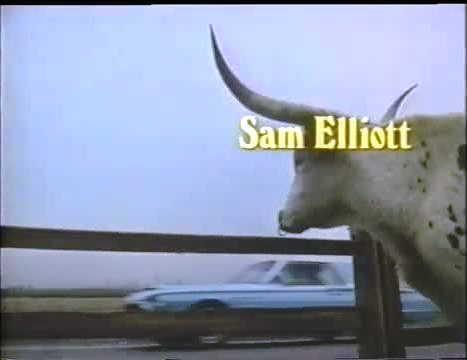
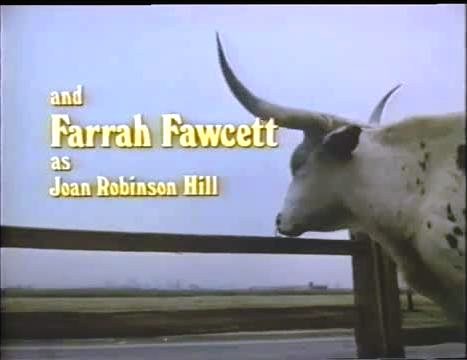



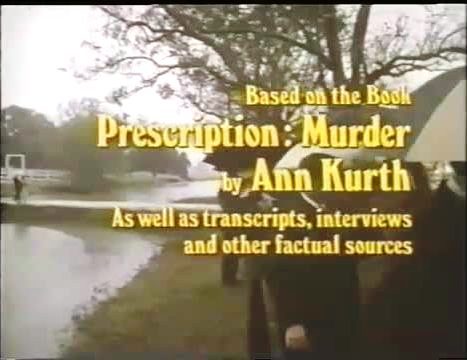
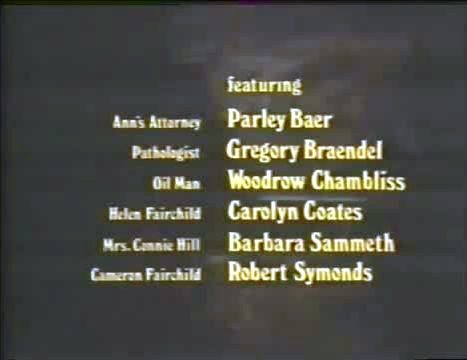
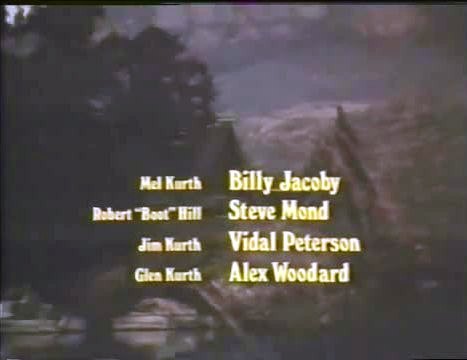
Murder in Texas - NBC - May 3-4. 1981
Crime Drama (2 episodes)
Running Time: 200 minutes
Stars:
Katharine Ross as Ann Kurth Hill
Sam Elliott as Dr. John Hill
Farrah Fawcett as Joan Robinson Hill
Andy Griffith as Ash Robinson
G. W. Bailey as Richard "Racehorse" Haynes
Barry Corbin as Dist. Atty. McMasters
Pamela Myers as Mary
Craig T. Nelson as Jack Ramsey
Royce Wallace as Wilma
Dimitra Arliss as Gina Meier
Jude Farese as Casselli
Philip Sterling as Dr. Helpern
Vernon Weddle as Dr. Joe
Lesley Woods as Reah Robinson
Parley Baer as Ann's attorney
Murder in Texas was nominated for a 1982 Golden Globe Award for Best Mini-Series or Motion Picture Made for TV. In addition, Andy Griffith received his only Emmy nomination for his portrayal of Ash Robinson. (Wikipedia)
3 notes
·
View notes
Text

American actress KATHARINE ROSS (born Jan 29, 1940) first came into prominence with her role in 'The Graduate,' for which she was nominated for an ‘Oscar.’
In 1969, she appeared in the Oscar-winning film 'Butch Cassidy and the Sundance Kid,' which again was a huge success. Her role in the horror thriller 'The Stepford Wives' also earned her critical acclaim.
Over the course of her career, she appeared in numerous TV shows, playing major as well as guest roles. Some of these shows include 'The Alfred Hitchcock Hour,' 'Run for Your Life,' and 'The Road West.'
In 2017, she was seen in the American drama film 'The Hero.' Directed by Brett Haley, the film is about an aging actor dealing with a terminal illness. A multi-faceted personality, she is also a successful author.
She has written several books for children, such as 'The Fuzzytail Friends' Great Egg Hunt' and 'Grover, Grover, Come on Over!'
Her accolades include one Academy Award nomination, one BAFTA Award, and two Golden Globe Awards. A native of Los Angeles, Ross spent most of her early life in the San Francisco Bay Area. After attending Santa Rosa Junior College for one year, Ross joined The Actors Workshop in San Francisco, and began appearing in theatrical productions.
Ross made her film debut in the Civil War-themed drama Shenandoah (1965), and had supporting parts in Mister Buddwing (1965) and The Singing Nun (1966) before being cast in Curtis Harrington's Games (1967), a thriller co-starring James Caan and Simone Signoret.
At Signoret's recommendation, Ross was cast as Elaine Robinson in Mike Nichols' comedy-drama The Graduate (1967), which saw her receive significant critical acclaim, including an Academy Award nomination for Best Supporting Actress, a BAFTA nomination, and Golden Globe win for New Star of the Year.
In 1968 Ross co-starred in the John Wayne movie Hellfighters playing his daughter Tish Buckman. She garnered further acclaim for her roles in two 1969 western films: Butch Cassidy and the Sundance Kid and Tell Them Willie Boy Is Here, for both of which she won the BAFTA Award for Best Actress.
In the 1970s, Ross had a leading role in the horror film The Stepford Wives (1975), for which she won the Saturn Award for Best Actress, and won her second Golden Globe Award for her performance in the drama Voyage of the Damned (1976). Other roles during this period included in disaster film The Swarm (1978), the supernatural horror film The Legacy (1978), and the science fiction film The Final Countdown (1980).
Ross spent the majority of the 1980s appearing in a number of television films, including Murder in Texas (1981) and The Shadow Riders (1982), and later starred on the network series The Colbys from 1985 to 1987.
Ross spent the majority of the 1990s in semiretirement, though she returned to film with a supporting part in Richard Kelly's cult film Donnie Darko (2001).
In 2016, she provided a voice role for the animated comedy series American Dad!, and in 2017 starred in the comedy-drama The Hero, opposite her husband, Sam Elliott.
14 notes
·
View notes
Text
'An acclaimed director and two rising young actors headline the '2023 new movie All of Us Strangers, a supernatural drama that has already earned a bit of buzz following its screening at various fall film festivals.
Searchlight Pictures is behind All of Us Strangers, which comes from BAFTA-nominated writer/director Andrew Haigh, and features some high-quality talent on screen as well, including Andrew Scott, Paul Mescal and Claire Foy.
Find out everything you need to know about All of Us Strangers right here...
All of Us Strangers plot
Based on a novel by Taichi Yamada, Haigh wrote the script for All of Us Strangers. Here is the official synopsis for the movie:
"One night in his near-empty tower block in contemporary London, Adam has a chance encounter with a mysterious neighbor Harry, which punctures the rhythm of his everyday life. As a relationship develops between them, Adam is preoccupied with memories of the past and finds himself drawn back to the suburban town where he grew up, and the childhood home where his parents, appear to be living, just as they were on the day they died, 30 years before."...
All of Us Strangers reviews
The majority of critics who have already seen the movie are fans, with the movie having a 93% "Fresh" score on Rotten Tomatoes as of December 23. What to Watch is no different, our All of Us Strangers review describes it as "heartbreaking, but essential viewing."
Here is a quick sampling of some of the things other critics have said about the movie:
Maureen Lee Lenker, Entertainment Weekly: "All of Us Strangers will break your heart — but it just might mend it too."
Tomris Laffly, The Wrap: "A sublime masterpiece. A rumination on grief and love, Haigh's poignant and understated ghost story is one of the best films of the year."
David Rooney, The Hollywood Reporter: "Prepare to be wrecked."
All of Us Strangers cast
The leads of Adam and Harry are played by Andrew Scott and Paul Mescal, respectively.
Scott is best known for his role as the "hot priest" in Fleabag, but he has been catching people's eyes for a while now, with memorable performances in Sherlock, Oslo and Catherine Called Birdy.
Mescal is one of the biggest rising stars in recent years thanks to his work in Normal People, The Lost Daughter and Aftersun, the latter of which earned him a Best Actor Oscar nomination. All of Us Strangers is his second movie coming out in the final months of 2023, as he also stars in Foe.
Playing the ghosts of Adam's parents are Claire Foy and Jamie Bell.
Foy broke out with her as Queen Elizabeth in the first two seasons of The Crown. Since then she has gone on to star in First Man, A Very British Scandal and Women Talking.
Bell has been appearing in movies since he was a kid in Billy Elliott. Some of his more recent notable work includes Turn: Washington's Spies, Rocketman, Without Remorse and Shining Girls.
All of Us Strangers trailer
The talents of the four actors leading All of Us Strangers are on full display in the movie’s trailer...
All of Us Strangers awards
We're keeping track of all the major end-of-year nominations and awards that All of Us Strangers earns. Check out what the movie has racked up so far below:
BAFTA Film Awards
Outstanding British Film (nominee)
Best Supporting Actor — Paul Mescal (nominee)
Best Supporting Actress — Claire Foy (nominee)
Best Director — Andrew Haigh (nominee)
Best Adapted Screenplay (nominee)
Best Casting (nominee)
Golden Globes
Best Performance by a Male Actor in a Motion Picture Drama — Andrew Scott (nominee)
Gotham Awards
Outstanding Lead Performance — Andrew Scott (nominee)
Outstanding Supporting Performance — Claire Foy (nominee)
Best Screenplay — Andrew Haigh (nominee)
Best International Feature (nominee)
British Independent Film Awards
Best British Independent Film (winner)
Best Director — Andrew Haigh (winner)
Best Lead Performance — Andrew Scott (nominee)
Best Supporting Performance — Paul Mescal (co-winner)
Best Supporting Performance — Jamie Bell (nominee)
Best Supporting Performance — Claire Foy (nominee)
Best Screenplay — Andrew Haigh (winner)
Best Casting (nominee)
Best Cinematography (winner)
Best Editing (winner)
Best Makeup & Hair Design (nominee)
Best Music Supervision (winner)
Best Production Design (nominee)
Best Sound (nominee)
Film Independent Spirit Awards
Best Feature (nominee)
Best Director — Andrew Haigh (nominee)
Best Lead Performance — Andrew Scott (nominee)
London Critics' Circle Awards
Film of the Year (nominee)
Screenwriter of the Year — Andrew Haigh (nominee)
Actor of the Year — Andrew Scott (nominee)
Supporting Actress of the Year — Claire Foy (nominee)
Supporting Actor of the Year — Paul Mescal (nominee)
The Attenborough Award: British/Irish Film of the Year (nominee)
British/Irish Performer of the Year — Paul Mescal (nominee)
British/Irish Performer of the Year — Andrew Scott (nominee)
Technical Achievement Award, Casting (nominee)
Los Angeles Film Critics Awards
Best Leading Performance — Andrew Scott (runner-up)
Best Screenplay (winner)
Best Editing (runner-up)
Andrew Haigh movies
British director Andrew Haigh may not be a household name with audiences, but his work has been some of the most lauded amongst cinephiles in recent years. Here is a look at his list of previous credits for feature movies:
Greek Pete (2009)
Weekend (2011)
45 Years (2015)
Lean on Pete (2017)
He has also directed episodes of the acclaimed TV series Looking, as well as its TV movie, and The OA.'
#All of Us Strangers#Searchlight Pictures#Andrew Haigh#Andrew Scott#Paul Mescal#Claire Foy#Jamie Bell#Gotham Awards#Golden Globes#BAFTA Film Awards#Los Angeles Film Critics Awards#London Critics' Circle Awards#Film Independent Spirit Awards#British Independent Film Awards#The Crown#A Very British Scandal#Women Talking#Turn: Washington's Spies#Rocketman#Without Remorse#Billy Elliot#Shining Girls#Aftersun#Normal People#The Lost Daughter#Foe#Fleabag#Sherlock#Hot Priest#Oslo
1 note
·
View note
Text
The Screen Actors Guild Nominations
Everything Everywhere All at Once and The Banshees of Inisherin are tied for the most film nominations at the 2023 SAG Awards with 5 each. Steven Spielberg’s The Fabelmans managed to leave a mark with 2 nominations. Other films that managed to score 2 SAG Award nominations include The Whale, The Woman King, and Black Panther: Wakanda Forever. Literally, just after winning Golden Globes last night, Austin Butler, Colin Farrell, Cate Blanchett, Michelle Yeoh, Ke Huy Quan, and Angela Bassett have all continued to secure spots in their respective categories. One nomination that may come as a surprise is Adam Sandler in Outstanding Performance by a Male Actor in a Leading Role for Netflix’s Hustle,
The most nominated television show from the 2023 SAG Award nominations is Ozark with a tally of 4. Barry, Better Call Saul, and Only Murders in the Building then come in second with 3 nominations each. Again, after last night’s Golden Globes, Quinta Brunson, Jennifer Coolidge, Jeremy Allen White, Paul Walter Houser, Amanda Seyfried, Evan Peters, and Julia Garner nabbed spots in their respective categories and are shaping to be this awards season’s favorite in television.
29th Annual SAG Awards will be the first to be aired live on Netflix’s YouTube channel on Sunday, February 26 at 8 p.m. ET / 5 p.m
SAG Awards Nominations 2023
Film
1. Outstanding Performance by a Cast in a Motion Picture
Babylon
The Banshees of Inisherin
Everything Everywhere All at Once
The Fabelmans
Women Talking
2. Outstanding Performance by a Male Actor in a Leading Role
Austin Butler, Elvis
Colin Farrell, The Banshees of Inisherin
Brendan Fraser, The Whale
Bill Nighy, Living
Adam Sandler, Hustle
3. Outstanding Performance by a Female Actor in a Leading Role
Cate Blanchett, TÁR
Viola Davis, The Woman King
Ana de Armas, Blonde
Danielle Deadwyler, Till
Michelle Yeoh, Everything Everywhere All at Once
4. Outstanding Performance by a Male Actor in a Supporting Role
Paul Dano, The Fabelmans
Brendan Gleeson, The Banshees of Inisherin
Barry Keoghan, The Banshees of Inisherin
Ke Huy Quan, Everything Everywhere All at Once
Eddie Redmayne, The Good Nurse
5. Outstanding Performance by a Female Actor in a Supporting Role
Angela Bassett, Black Panther: Wakanda Forever
Hong Chau, The Whale
Kerry Condon, The Banshees of Inisherin
Jamie-Lee Curtis, Everything Everywhere All at Once
Stephanie Hsu, Everything Everywhere All at Once
6. Outstanding Action Performance by a Stunt Ensemble in a Motion Picture
The Batman
The Woman King
Top Gun: Maverick
Avatar: The Way of Water
Black Panther: Wakanda Forever
TV
1. Outstanding Performance by an Ensemble in a Drama Series
Better Call Saul
The Crown
Ozark
Severance
The White Lotus
2. Outstanding Performance by an Ensemble in a Comedy Series
Abbott Elementary
Barry
The Bear
Hacks
Only Murders in the Building
3. Outstanding Performance by a Male Actor in a Drama Series
Jonathan Banks, Better Call Saul
Jason Bateman, Ozark
Jeff Bridges, The Old Man
Bob Odenkirk, Better Call Saul
Adam Scott, Severance
4. Outstanding Performance by a Female Actor in a Drama Series
Jennifer Coolidge, The White Lotus
Elizabeth Debicki, The Crown
Julia Garner, Ozark
Laura Linney, Ozark
Zendaya, Euphoria
5. Outstanding Performance by a Male Actor in a Comedy Series
Anthony Carrigan, Barry
Bill Hader, Barry
Steve Martin, Only Murders in the Building
Martin Short, Only Murders in the Building
Jeremy Allen White, The Bear
6. Outstanding Performance by a Female Actor in a Comedy Series
Christina Applegate, Dead to Me
Rachel Brosnahan, The Marvelous Mrs. Maisel
Quinta Brunson, Abbott Elementary
Jenna Ortega, Wednesday
Jean Smart, Hacks
7. Outstanding Performance by a Male Actor in a Television Movie or Limited Series
Steve Carell, The Patient
Taron Edgerton, Blackbird
Sam Elliott, 1883
Paul Walter Houser, Blackbird
Evan Peters, Dahmer – Monster: The Jeffrey Dahmer Story
8. Outstanding Performance by a Female Actor in a Television Movie or Limited Series
Emily Blunt, The English
Jessica Chastain, George & Tammy
Julia Garner, Inventing Anna
Niecy Nash-Betts, Dahmer – Monster: The Jeffrey Dahmer Story
Amanda Seyfried, The Dropout
10. Outstanding Action Performance by a Stunt Ensemble in a Television Series
Andor
The Boys
House of the Dragon
Lord of the Rings: The Rings of Power
Stranger Things
#sag awards#sag aftra#film#tv series#stranger things#the boys#house of the dragon#lord of the rings#the rings of power#the english#dropout#the dropout#dahmer 2022#monster#george & tammy#blackbird#inventing anna#1883 series#yellowstone#the patient#abbott elementary#wednsday addams#wednesday#hacks#andor s1#andor series#dead to me#the bear#only murders in the building#barry
3 notes
·
View notes
Photo

THE NORTHMAN (2022)
Starring Alexander Skarsgård, Nicole Kidman, Claes Bang, Anya Taylor-Joy, Ethan Hawke, Björk, Willem Dafoe, Gustav Lindh, Elliott Rose, Eldar Skar, Phill Martin, Ingvar Eggert Sigurðsson, Olwen Fouéré, Kate Dickie, Ian Whyte, Hafþór Júlíus Björnsson, Magne Osnes, Ralph Ineson, Tadhg Murphy, Ian Gerard Whyte, Doa Barney, Katie Pattinson and Murray McArthur.
Screenplay by Sjón & Robert Eggers.
Directed by Robert Eggers.
Distributed by Focus Features. 137 minutes. Rated R.
Through Actor Alexander Skarsgård's Eyes, Director Robert Eggers' "The Northman" Explores A Violent Period in Early European History
While Iceland might have inspired The Northman, Ireland provided much of the actual landscape pictured in director Robert Eggers' decidedly eccentric third release. There was a further connection to Eire, as well. Nearly a thousand years ago, Vikings had invaded the island, so their brutal culture had an impact on the inhabitants back then who were brutal enough on their own. Nonetheless, Iceland's dramatic atmospherics of volcanoes and a dark, brooding environment became a unique character in this film.
Co-written by Eggers and Icelandic author/poet Sjón, this epic historical drama – based on the legend of Amleth – provided source material for Shakespeare's Hamlet. It stars Alexander Skarsgård (who also co-produced). Nicole Kidman, Claes Bang, Anya Taylor-Joy, Ethan Hawke, Björk and Willem Dafoe rounded out the veteran cast.
Skarsgård had been wanting to make a Viking film for a while. Born in Stockholm on August 25th, 1976, the Swedish actor began at seven but quit at 13. After serving in the Swedish military, Skarsgård landed in the American comedy Zoolander. In 2008, he joined the miniseries Generation Kill but his real breakthrough came when he portrayed vampire Eric Northman in the television series True Blood (2008–2014). After appearing in such films as 2011's Melancholia, Battleship and The Legend of Tarzan, Skarsgård starred in the drama series Big Little Lies (2017–2019). That earned him a Primetime Emmy Award, a Golden Globe Award, a Critics' Choice Television Award and a Screen Actors Guild Award. From 2019 to 2022, he appeared in the films Long Shot and Godzilla vs. Kong. He also played Randall Flagg in the miniseries The Stand (2020–2021) and guest-starred in the series Succession.
After the two met to discuss possible collaborations, the pair decided to make the film Eggers' third project. Eggers began his career as a New York theatre designer and director before transitioning into film work. Born July 7, 1983, the film director, screenwriter, and production designer became known for his acclaimed supernatural horror films, 2015's The Witch (which starred Anya Taylor-Joy) and 2019's The Lighthouse.
Much of the cast joined in 2019 and filming took place throughout Ireland between August and December 2020 on a $70–90 million budget. Its world premiere was in Stockholm's Rigoletto Cinema on March 28, 2022 and began a global theatrical release schedule throughout April culminating in the United States on April 22. Having already grossed over $23 million worldwide, it received critical acclaim, with praise aimed at its direction, production values, and the performances.
Nonetheless, for all the vaunted visual eccentricities found in Egger's earlier two films, this taut feature provides a mixed bag of hyper-dramatic moments, with almost parodic touches of a Marvel Superhero film and some weird mystical flourishes. While Egger's visual intensity drives the movie, it lacks the richer character development and plot elements that would have made it much more than just an artistic Conan the Barbarian-like savage tale.
Set in A.D. 895, The Northman follows Viking prince Amleth on a quest to avenge his murdered father, King Aurvandill War-Raven (Hawke). After having returned from his overseas conquests, the king reunites with Queen Gudrún (Kidman) and the prince – his son and heir – upon return to his kingdom on the island of Hrafnsey. The two participate in a spiritual ceremony overseen by Aurvandill's jester, Heimir (Dafoe). The next morning, Aurvandill's brother Fjölnir (Bang) and his masked warriors ambush and assassinate the king. After seeing his village massacred and his mother taken away screaming by his uncle, the young Amleth flees by boat swearing revenge for his slaughtered parent, to save his mother and kill Fjölnir.
Life is hard, cold and unembellished by much art or pleasantries except for orgiastic rituals and torturous tests of strength and endurance amidst the sheer force of 10th century Iceland. Like The Last Samurai or Dances With Wolves, this film offers a unique look into the native life of a Viking. Unfortunately, that cultural exploration is underplayed in exchange for mystical machinations and intensely bloody battles.
After the assassination, 10 years pass and Amleth has been raised as an old Norse "berserker," attacking settlements throughout Europe – even as far away as the land of Rus. The now-biff battler sneaks aboard a slave ship heading to Iceland. Posing as a slave, he encounters Slavic Olga (Taylor-Joy), who claims to be a sorceress now enslaved. Upon arrival, everyone is taken to the farm that's now Fjölnir's, having lost his kingdom years ago. There it is revealed that beautiful Gudrún, now Fjölnir's wife, has borne him a son, Gunnar (Elliot Rose).
Through various plot twists (Amleth learns that his mother hated her first husband since she was a captured slave whom he raped), Amleth and Olga (now pregnant with his twins) keep working towards Fjölnir's demise, killing off his tribe and bloodline. Ultimately, Amleth frees the slaves, who kill most of Fjölnir's men, while Gudrún and then, Gunnar, are stabbed to death. Fjölnir discovers the bodies and schedules a final battle with Amleth at the Gates of Hel – the volcano Hekla. At the lava-spewing peak, they thrash at each other in a fierce sword fight. Fjölnir is decapitated, but Amleth is fatally stabbed through the heart at the same time. As he dies, Amleth has a future vision of Olga embracing their twin children. He seemingly ascends to Valhalla while shedding his first tear since his father's murder.
All is well and good, passionate and powerful. But so much of what might have been an insightful exploration of Viking life – especially while the young prince was growing up under their tutelage – is sacrificed for battle, blood and gore. I'm glad to have gone off to the North but I was left a bit cold from the arduous experience.
Brad Balfour
Copyright ©2022 PopEntertainment.com. All rights reserved. Posted: April 21, 2022.
youtube
6 notes
·
View notes
Text
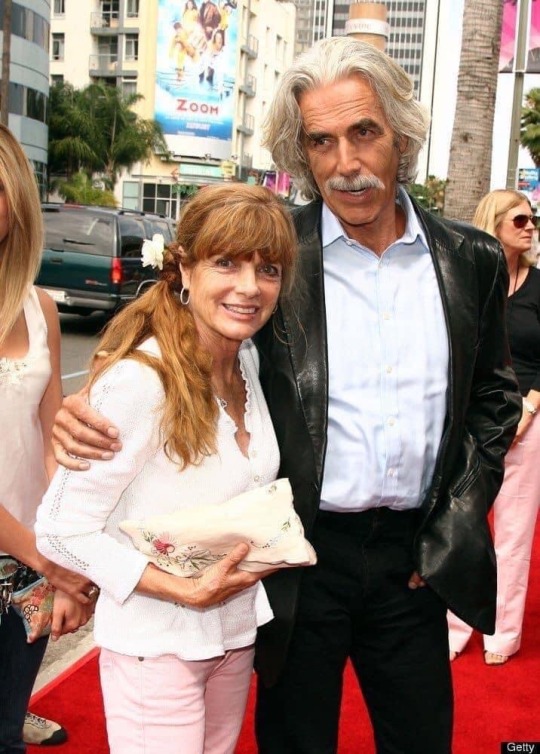
Samuel Pack Elliot and Katherine Juliet Ross.
Their love story dates back to the late 1960s, when Ross starred in Butch Cassidy and the Sundance Kid and Elliott had a small background role. While he admired her from afar on set, they didn't truly connect for another decade when they both appeared in 1978's The Legacy. When Ross split from her then-husband shortly after, Elliott made his move — and the pair have been together ever since.
The couple got married in 1984 and welcomed their daughter, Cleo Rose Elliott, just a few months later. Since then, Elliott and Ross have continued to work together, both on-screen and behind the scenes. Looking back at their relationship, the A Star is Born actor says that they have both always put in the work it takes to keep their marriage successful.
Katharine Juliet Ross (born January 29, 1940) is an American actress on film, stage, and television. Her accolades include an Academy Award nomination, a BAFTA Award, and two Golden Globe Awards. Ross was cast as Elaine Robinson in Mike Nichols' comedy-drama The Graduate (1967), which saw her receive significant critical acclaim, including an Academy Award nomination for Best Supporting Actress, a BAFTA nomination, and Golden Globe win for New Star of the Year.
Samuel Pack Elliott (born August 9, 1944) is an American actor with a career spanning over five decades of film and television. He is recognized for his deep sonorous voice. Elliott has received various accolades, including a Screen Actors Guild Award and a National Board of Review Award, in addition to nominations for an Academy Award, two Primetime Emmy Awards and two Golden Globe Awards.
Elliott married actress Katharine Ross in 1984, becoming her fifth husband. They have a daughter, Cleo, who is a musician in Malibu, California. Ross and Elliott live on a seaside ranch in Malibu, which they purchased in the 1970s.
0 notes
Text
Sam Elliott: The Man Behind the Iconic Mustache
Hey there, movie buffs and fans of classic cinema! Today, we're taking a stroll down memory lane to celebrate the life and career of the one and only Sam Elliott. You know, that guy with the deep voice and the epic mustache? Yeah, that's him! In this blog, we'll dive into Sam Elliott's journey from small-town beginnings to Hollywood stardom, exploring his most memorable roles and the legacy he's left on the silver screen.
Early Life and Hollywood Dreams: Sam Elliott wasn't always the rugged cowboy we know and love. He grew up in California and Oregon, where he discovered his love for acting while studying at the University of Oregon. After graduation, he packed his bags and headed to Tinseltown, hoping to make it big in the movie biz. And boy, did he ever!
Breakthrough Roles and That Signature Style: In the '70s and '80s, Sam Elliott became the epitome of cool in Hollywood. With his deep, gravelly voice and that iconic mustache, he stole the show in every role he tackled. From playing tough cowboys to wise mentors, Elliott brought a unique blend of charm and ruggedness to the silver screen. Some of his standout roles include the tough-as-nails bouncer in "Road House" and the lovable cowboy in "The Big Lebowski."
Notable Performances and Awards: But it wasn't just Elliott's looks that made him a star – it was his talent, too. He earned critical acclaim for his performances in both film and television, earning nominations for prestigious awards like the Golden Globes. Whether he was playing a grizzled cowboy or a wise old sage, Elliott always brought authenticity and depth to his characters, leaving a lasting impression on audiences and critics alike.
Recent Work and Leaving a Legacy: Even as the years have passed, Sam Elliott's star continues to shine bright. From his scene-stealing roles in recent films like "A Star is Born" to his heartfelt performances in TV shows like "The Ranch," Elliott proves that he's still got what it takes to captivate audiences. His legacy as one of Hollywood's most iconic actors is secure, and his influence will be felt for generations to come.
Conclusion: In conclusion, Sam Elliott is more than just a movie star – he's a legend. With his rugged charm, unmistakable voice, and that legendary mustache, he's left an indelible mark on the world of entertainment. From his early days as a young actor to his status as a Hollywood icon, Sam Elliott's journey is one of perseverance, talent, and pure star power. So here's to you, Sam – may your legacy continue to inspire and entertain for years to come!
0 notes
Photo

Abby Elliott | Pamella Roland Fall 2021 gown | Golden Globe Awards | 2023
#pc: gettyimages#abby elliott#pamella roland#pamella roland fall 2021#golden globe awards#2023 golden globe awards#2023
3 notes
·
View notes
Text
Week 5 Blog Post - Chloe Ziegler
The movie I watched this week was E.T. It is a science fiction movie about a young boy who finds an alien in his backyard. As the story unfolds, they realize he needs to get back home and rush to help him before it’s too late. The movie came out in 1982, starring young Henry Thomas as Elliot and directed by Steven Spielberg. As soon as the movie came out it became an immediate success, and surpassed many other hit movies at the time. In the box office the movie has earned almost 800 million dollars while the production budget only cost them 10.5 million. In all of its success, many awards were presented like the Academy Awards, Golden Globe awards, and the Saturn Awards to name a few.
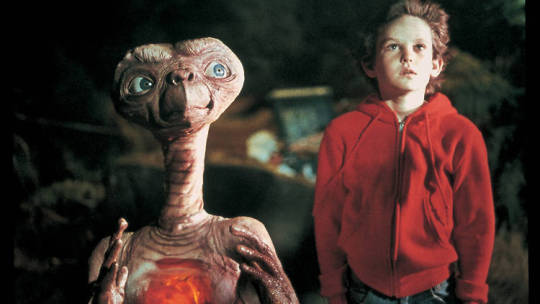
Many critics would agree with each other that this is an instrumental film in the success of Hollywood blockbusters. It was widely loved when it came out so they even re-released versions of it that included unseen footage many years after. One famous movie critic, Roger Ebert, mentions that "the whole movie is based on what moviemakers call "point of view." Almost every single important shot is seen either as E.T. would see it, or as Elliott would see it. And things are understood as they would understand them." It points out many of the camera angles which I found odd throughout the movie. The movie presents itself from a child’s point of view and that’s what makes it unique. From any of the adults' points of view, E.T. would’ve been weird or scary but the curiosity of Elliot makes it what it is.
https://www.rogerebert.com/reviews/et-the-extra-terrestrial-2002
The year 1982 was huge for both America and the world as a whole. In this year there were many technological advancements. One of the events that happened this year was when a man received the world's first artificial heart. The man who received the artificial heart remained alive for 112 days after the surgery. This is significant because it shows us that the world is growing rapidly and so is our innovations and technology. In terms of the film industry, during this year sci-fi movies excelled and E.T. being at the top of that list. E.T. reflects many of these innovations though through the use of CGI and animatronics which hadn’t been seen very often.
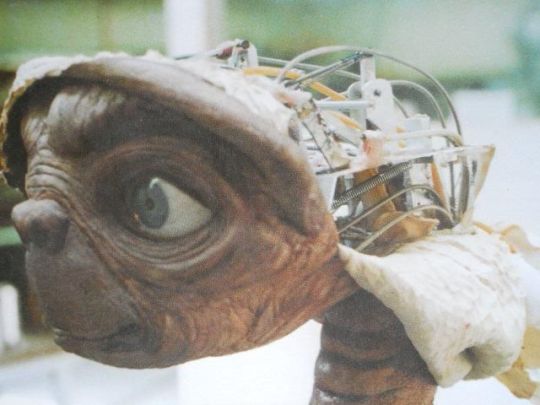
E.T. is a unique movie in all aspects. The story is about an alien and a young boy becoming friends while they have to avoid the authorities. The way it’s filmed allows the viewers to understand the kids who feel like they have to avoid adults and authorities. It opens our minds up because that is what we would predict to happen but those seem to be the people who hurt E.T. It is not like other films either. Steven Spielberg does a great job of making a science fiction film but he also plays into the emotions of the viewers by allowing Elliot and E.T. to have both a physical and emotional connection to one another. At one point the kids learn that Elliot has a home too though that he needs to get back too and he says "Phone. Home. E.T. phone home" as he points through the window at the sky. Many of the scenes of the adults in the film are recorded from their waists down which is how a child would see them and I think that is also very interesting.
The themes presented throughout the movie include adventure, eeriness, excitement and most of all curiosity. These are mostly brought through the music and the acting which create the atmosphere we see. The movie takes place in a suburban town and is familiar to many people’s own homes in that sense. Some of Hofstede’s cultural elements present in the movie include the power distance index and individualism vs. collectivism. These are seen in the way that the kids feel like they must avoid the authorities and work alone to help E.T. It is specific to kids and how they perceive the world but it attracts a wide audience because it is relevant to many cultures.
This is definitely a more conventional film in the story line but there are several unconventional aspects present. It follows the direction of the kids making a discovery, having to solve the problems they encounter, and then help E.T. to have a happy ending. Elliot even says to E.T. at one point “You could be happy here, I could take care of you. I wouldn't let anybody hurt you. We could grow up together, E.T.” But, they know he can’t stay. Throughout the movie we only really see the kids' perspectives, we see E.T. and Elliot have a connection to one another’s body, and we see Elliot lose E.T. in the end. It works though because while we don’t see the authorities, we are able to piece together the ideas that E.T. is being searched for and that E.T. is becoming more attached to him. Overall, it is a unique story that was different for its time and had only been seen a few times before but became a huge hit.
0 notes
Link
0 notes
Text
Celebrate Oscars 2023 With the Show’s Official “Golden Nights” Cocktail
As everyone else waits to see which celebrities are getting awards at the Oscars this Sunday, Wolfgang Puck will be busy preparing food for the famous Governor’s Ball afterparty, as he’s done every year since 1995. This year, however, Puck will be also joined by Elliott Grover, the executive chef of the London location of Puck’s iconic steakhouse, Cut. Alongside a British-inspired menu of…

View On WordPress
0 notes
Text
Mancini - The Pink Panther Theme Easy Piano Solo arr. (sheet music)
Mancini - The Pink Panther Theme Easy Piano Solo arr. (sheet music)
Henry Mancini
Please, subscribe to our Library. Thank you!
Best Sheet Music download from our Library.
Mancini's Filmography
Mancini - The Pink Panther Theme Easy Piano Solo arr. (sheet music)
https://youtu.be/5RtjfNpzqJE
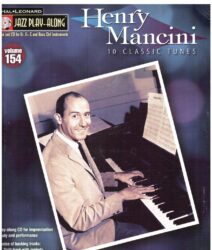
Henry Mancini
Henry Mancini was an American composer, conductor, arranger, pianist and flutist. Often cited as one of the greatest composers in the history of film, he won four Academy Awards, a Golden Globe, and twenty Grammy Awards, plus a posthumous Grammy Lifetime Achievement Award in 1995.
His works include the theme and soundtrack for the Peter Gunn television series, as well as the music for The Pink Panther film series ("The Pink Panther Theme") and "Moon River" from Breakfast at Tiffany's. The Music from Peter Gunn, Mr. Lucky, won the inaugural Grammy Award for Album of the Year.
Mancini enjoyed a long collaboration in composing film scores for the film director Blake Edwards. Mancini also scored a No. 1 hit single during the rock era on the Hot 100: his arrangement and recording of the "Love Theme from Romeo and Juliet" spent two weeks at the top, starting with the week ending June 28, 1969.
In 1996, the Henry Mancini Institute, an academy for young music professionals, was founded by Jack Elliott in Mancini's honor, and was later under the direction of composer-conductor Patrick Williams. By the mid-2000s, however, the institute could not sustain itself and closed its doors on December 30, 2006.
The American Society of Composers, Authors and Publishers (ASCAP) Foundation "Henry Mancini Music Scholarship" has been awarded annually since 2001.
In 2005, the Henry Mancini Arts Academy was opened as a division of the Lincoln Park Performing Arts Center. The center is located in Midland, Pennsylvania, minutes away from Mancini's hometown of Aliquippa.
The Henry Mancini Arts Academy is an evening-and-weekend performing arts program for children from pre-K to grade 12, with some classes also available for adults. The program includes dance, voice, musical theater, and instrumental lessons.
The American Film Institute ranked Mancini's songs "Moon River" No. 4 and "Days of Wine and Roses" No. 39 on their list of the greatest songs, and his score for The Pink Panther No. 20 on their list of the greatest film scores. His scores for Breakfast at Tiffany's (1961), Charade (1963), Hatari! (1962), Touch of Evil (1958) and Wait Until Dark (1967) were also nominated for the list.
Mancini's Filmography
The Raiders (1952)
The Glenn Miller Story (1953)
Abbott and Costello Go to Mars (1953)
Law and Order (1953)
City Beneath the Sea (1953)
Destry (1954)
Creature from the Black Lagoon (1954)
The Private War of Major Benson (1955)
The Benny Goodman Story (1956)
The Creature Walks Among Us (1956)
Rock, Pretty Baby (1956)
Summer Love (1957)
Damn Citizen (1958)
Touch of Evil (1958)
The Big Beat (1958)
Operation Petticoat (1959)
High Time (1960)
The Great Impostor (1960)
Breakfast at Tiffany's (1961)
Bachelor in Paradise (1961)
Experiment in Terror (1962)
Mr. Hobbs Takes a Vacation (1962)
Hatari! (1962)
Days of Wine and Roses (1962)
Soldier in the Rain (1963)
Charade (1963)
The Pink Panther (1963)
Man's Favorite Sport? (1964)
A Shot in the Dark (1964)
Dear Heart (1964)
The Great Race (1965)
Moment to Moment (1966)
Arabesque (1966)
What Did You Do in the War, Daddy? (1966)
Two for the Road (1967)
Gunn ...Number One! (1967)
Wait Until Dark (1967)
The Party (1968)
Me, Natalie (1969)
Gaily, Gaily (1969)
The Molly Maguires (1970)
Sunflower (1970)
The Hawaiians (1970)
Darling Lili (1970)
The Night Visitor (1971)
Sometimes a Great Notion (1971)
Frenzy (Rejected Score) (1972)
The Thief Who Came To Dinner (1973)
Visions of Eight (1973)
Oklahoma Crude (1973)
That's Entertainment! (1974)
The White Dawn (1974)
The Girl from Petrovka (1974)
99 and 44/100% Dead (1974)
The Great Waldo Pepper (1975)
The Return of the Pink Panther (1975)
Jacqueline Susann's Once Is Not Enough (1975)
W.C. Fields and Me (1976)
Silver Streak (1976)
The Pink Panther Strikes Again (1976)
Angela (1977)
House Calls (1978)
Revenge of the Pink Panther (1978)
Who Is Killing the Great Chefs of Europe? (1978)
The Prisoner of Zenda (1979)
Nightwing (1979)
10 (1979)
Little Miss Marker (1980)
A Change of Seasons (1980)
Back Roads (1981)
S.O.B. (1981)
Condorman (1981)
Mommie Dearest (1981)
Victor Victoria (1982)
Trail of the Pink Panther (1982)
Better Late Than Never (1983)
Second Thoughts (1983)
Curse of the Pink Panther (1983)
The Man Who Loved Women (1983)
Harry & Son (1984)
That's Dancing (1985)
Lifeforce (1985)
Santa Claus: The Movie (1985)
The Great Mouse Detective (1986)
A Fine Mess (1986)
That's Life! (1986)
Blind Date (1987)
The Glass Menagerie (1987)
Sunset (1988)
Without a Clue (1988)
Physical Evidence (1989)
Welcome Home (1989)
Ghost Dad (1990)
Fear (1990)
Switch (1991)
Married to It (1991)
Tom and Jerry: The Movie (1992)
Son of the Pink Panther (1993)
Read the full article
1 note
·
View note